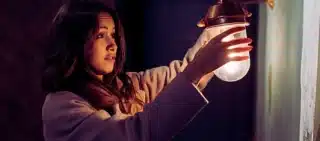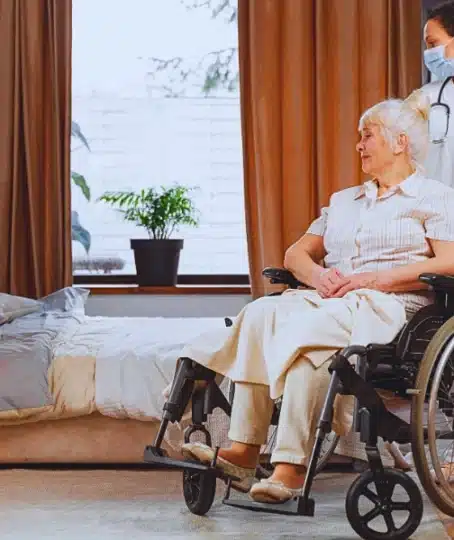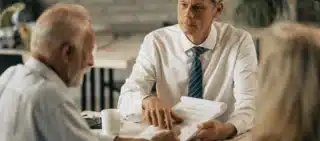
When Is a Property Owner Liable for Poor Lighting Accidents in Illinois? Property owners owe a duty of care to...


There are many common causes of nursing home falls in central Illinois and across the U.S., including preventable conditions like broken furniture, uneven flooring, and improper footwear. In the event of a fall in a nursing home in Illinois, residents and their loved ones may be able to recover compensation if negligence or abuse was responsible for the fall.
To discuss your options when it comes to recovering compensation from negligent or abusive nursing home staff or facilities, call Strong Law Offices at 309-688-5297 for a nursing home injury lawyer in Chicago.

According to recent data from the U.S. Centers for Disease Control and Prevention (CDC), falls are the main cause of injuries for adults aged 65 and older. There are many factors that can cause falls among these individuals, with many of them resulting from instances of nursing home negligence and abuse affecting residents.
The majority of falls result from preventable causes, such as:
If nursing home employees fail to keep areas safe from fall hazards or if facilities don't properly train or hire staff, victims and their families may claim nursing home liability for falls and subsequent injuries.
There are multiple preventative steps that nursing home facilities and staff can take to minimize the risk of falls.
These measures include:
Staff should understand the risk of falling for each individual based on their ability to walk independently and the types of medications they consume, helping develop care plans that mitigate fall risks.
Nursing home facilities need enough staff to give residents the attention they need to remain safe from falls and other types of accidents and injuries. Otherwise, understaffing could increase the chances of inattentiveness and falls, leaving injured residents unattended.
Certain equipment could help reduce the risk of falls in nursing homes, such as railings, walkers, wheelchairs, floors and mats that eliminate the risk of slipping, and grab bars in restrooms or other areas.
Management must properly train all staff to watch for fall risks and address them. Staff must also know how to care for residents after they fall, including treating injuries they sustain and taking care to prevent future instances.
Facilities need to hire qualified staff who do not have a troubling criminal background and who exhibit the skills needed to properly care for residents. Negligent hiring could lead to increases in negligence and abuse.
If falls do occur, nursing home staff should draft reports that detail how they occurred and the types of injuries sustained, which could factor into risk assessment and future care plans to reduce the risk of falls.
If you suspect that a loved one fell in a nursing home as a result of negligent or abusive staff or management, there are signs to watch for that could help you identify these issues.
For example, you might notice injuries and bruising that your loved one is unable or unwilling to explain. You may also notice an absence of railings, non-slip surfaces, uneven flooring, or other measures in place to help prevent falls.
Signs may also include a personality shift, such as a sudden quietness and reluctance for the resident to speak about his or her conditions and treatment. Also, signs of depression or anxiety might be apparent and indicate an abusive or negligent environment. Instances of repeated falls could also be a sign that staff are failing to properly care for residents.
If a nursing home resident suffers a fall, and negligence or abuse of any kind is behind it, you may be able to file a claim or lawsuit against liable staff, management, or facility owners. However, it can be difficult to prove liability and recover total compensation in these instances, especially when residents are afraid to speak up about or are even unaware of the practices enabling falls and subsequent injuries.
It's best to hire experienced nursing home abuse attorneys who know how to proceed with these types of cases. More specifically, a nursing home injury lawyer could help with:
You might wonder: How do you report abuse in a nursing home? An attorney could guide you through the process and make it known to nursing home management that abuse has led to a fall or another type of injury.
A lawyer could help prove that injuries resulted from abuse or negligence by proving that nursing home staff or owners owed a duty of care, that they breached that duty of care, that this breach of duty led to a fall, and that the fall resulted in various injuries and other damages.
How does emotional abuse in nursing homes affect residents long-term? An attorney could answer questions like these in determining the damages, including the long-term impacts of abuse on residents and their families.
If needed, an attorney could file a lawsuit in court, handle the discovery phase, collect evidence, and present arguments in court.
For help with a case, contact us today at Strong Law Offices to consult with an attorney and discuss your needs.

When Is a Property Owner Liable for Poor Lighting Accidents in Illinois? Property owners owe a duty of care to...

How Early Representation Protects Your Case Obtaining an attorney at the beginning of the process allows your lawyer to handle...

Establishing liability oftentimes involves evaluation of governmental standards and laws, and applying the facts of an accident to various industry...